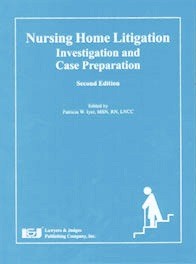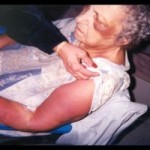Elder Abuse Cases: How the Legal Nurse Consultant Can Help
Neglect as the foundation of elder abuse cases:
when an elder does not receive care to satisfy her basic needs. The medical records may reveal signs of malnutrition (unintentional weight loss) and low albumin levels, dehydration (elevated sodium and blood urea nitrogen), pressure sores, and an unkempt appearance.
Neglect often stems from understaffing. In a nursing home or assisted living facility, staffing records may reveal chronic understaffing. Slow eaters who need to be fed may not receive enough food to meet their nutritional needs. Incontinent residents wait for hours to be cleaned. Many elder abuse cases arise when the neglect is discovered as a result of the resident being transferred to a hospital.
Abandonment:
when a resident is deserted by someone responsible for care. An elder living in the community who is dependent on others may not receive food or attention.
If visiting nurses are involved, they may note signs of neglect or abandonment. I was involved in an elder abuse case in which a home health aide took a job in a hospital as a nursing assistant. She hired her friend to care for a woman in her home while the aide went through hospital orientation. The friend did not turn the woman, who developed pressure sores. The abandonment came to light when the family found the sores.
Physical abuse:
when an elder is the victim of physical force. Medical records may document bruises, hematomas, or sexual assault injuries. In one elder abuse case I was involved in, a nursing home resident developed bruises. When the police came, he said someone came into his room at night and beat him. The facility had no explanation for what happened to him and settled the lawsuit.
Many elders have thin skin, which is easily torn. Physical abuse may also include the use of restraints, which are not commonly used anymore in long term care facilities.
Emotional abuse:
when an elder is humiliated, intimidated, or chastised. Residents may be bullied by staff or family members. One of my friends lost her job in a nursing home because she screamed at the woman she was taking care of. My friend lost control as a result of the woman’s repetitive questions. Elders may react by cringing when they are near abusive healthcare providers.
Financial exploitation:
when a person takes advantage of an elder to gain access to her money or property. In one elder abuse case, a home health aide stole a diamond ring from a woman for whom she was caring. One of my friends was bilked by a home health aide she hired to care for her husband. The aide disappeared after she wrote a check from the couple’s check book for $500.
Consider the specific complexities of a case involving an elder. Although the elder may have been abused or neglected, pre-existing medical conditions may have had a greater impact on the outcome. The elderly patient who is institutionalized has an assortment of medical conditions that required long term care.
Defense of elder abuse cases
The defense position typically attacks the causation argument by arguing:
- Pre-existing conditions caused the elder’s death, not the actions of the healthcare providers.
- The patient’s death was caused by natural factors or a gradual decline.
- The decedent had no life expectancy.
 Your knowledge of the aging process, forms of neglect, and how to locate board certified experts in geriatric medicine will assist attorneys in litigating elder abuse cases.
Your knowledge of the aging process, forms of neglect, and how to locate board certified experts in geriatric medicine will assist attorneys in litigating elder abuse cases.
Pat Iyer edited Nursing Home Litigation: Investigation and Case Preparation, used by LNCs and attorneys alike to work up malpractice cases involving elders.

